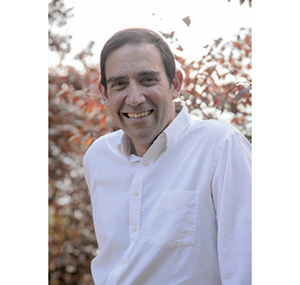
Parshat Vayeishev launches the conclusion of Sefer Bereishit: the saga of Yaakov, his family, and the internal strife that gashes any attempt at family unity. Having arrived in Israel, Yaakov dreamed of retiring to a life of tranquility. Unexpectedly, the tumult of Yosef erupted, fracturing the family and dragging the entire clan back to Egypt. Yaakov’s unrequited hopes are captured in the very first verse of the parsha, which describes his dwelling in the land of his ancestors—b’eretz m’gurei aviv.
This phrase, “the land of his ancestors,” can best be appreciated by contrasting it with the previous section in the Torah—the conclusion of Parshat Vayishlach. Prior to describing Yaakov’s challenges in Vayeishev, the Torah lengthily enumerates Eisav’s genealogy. This rather extensive and seemingly irrelevant list of Eisav’s progeny has the literary effect of dismissing Esav from the narrative stage so that the history of Bereishit can continue with Yaakov and his descendants. Why is Eisav unceremoniously discharged from the historical narrative of Sefer Bereishit?
The basis for Eisav’s exclusion is contained in two very cryptic pesukim embedded in the concluding section of Vayishlach. The Torah (Bereishit 36:6-7) describes Eisav as collecting his children, cattle, possessions and entire convoy to travel to a land “because” of Ya’akov. This very ambiguous verse doesn’t stipulate Eisav’s destination; only that he travels to some nondescript land outside of Israel. Furthermore, the motivation of his journey is obscure, as he travels “because of his brother Yaakov.” Rashi fills in the blanks: Eisav was fully aware of the great promise and potential of life in Israel. He fully grasped the concept of living in the chosen land as part of a Divinely selected people representing the values of God in this world. However, he was also fully aware of the harsh price for living in Israel. Life in this land will be contested and internationally challenged. The entire world subconsciously recognizes this territory as the land of God and craves residence in, and affiliation with, this patch of the globe. This craving will often explode into hostility and hatred while igniting unrelenting challenge to Jewish presence in Israel. Beyond the boundaries of Israel, Jews will be “strangers in a strange land”—professing the presence of God but absorbing vitriol and scorn precisely because we serve as the world’s conscience. We challenge the world to higher ground and, sadly and ironically, are often hated for that.
In short, Eisav was aware of the great opportunity to live in Israel as part of God’s selected people but was terrified of the harsh and unforgiving demands of this lifestyle. The ticket of admission into the theater of history was too steep a price, so he flinches. Eisav balks and flees to a quiet place where he doesn’t have to face the burden of historical challenge. The Torah doesn’t iterate his ultimate destination because it is irrelevant—he is fleeing the “charged” land of history and his ultimate destination is insignificant. He leaves “because” of his brother Yaakov: because he was unable to shoulder the great burden Yaakov was able to brace. Eisav discovers suburbia: polished malls and manicured lawns and, most importantly, a quiet sideline from the frantic frontline of Jewish history.
By extensively delineating his children and entourage, the Torah underscores that, in fleeing, Eisav forfeited any historical impact. At this stage, he merely bore children and grandchildren and passed from this world. History resumes in Parshat Vayeishev with Yaakov who was quite aware of the price of life in Israel and who adopted the challenge. He lives not just in the land of Canaan but in the land of m’gurei aviv—the land of his ancestors—with full cognizance and acceptance of the prophecies, promises and challenges of living in this land of Divine promise. He willfully accepts the challenge of m’gurei aviv, of a land replete with a glorious past and bristling with a challenging future. Yaakov is willing to embrace the glory of life in Israel as well as its heavy price.
This historical challenge reverberates throughout each generation. History is complex and life’s byzantine circumstances often determine our “residences” in a manner that we can’t always dictate. Yaakov himself felt the brunt of these larger historical forces watching his dreams of sanctuary in Israel become thwarted by the family tempest. Ultimately, the tsunami of Yosef proves too powerful and drags Yaakov involuntarily down to Egypt. Our desire to reside in the Land of Israel isn’t always readily available—either practically or emotionally. However, living the mandate of Jewish history and immersing in the “saga” of life in Israel is incumbent upon every Jew. Ultimately, every Jew faces the Eisav challenge; proudly disseminating the Jewish agenda will often elicit hostility and antagonism. It may feel more soothing and less awkward to mute our message or conceal our identity while disappearing into the woodwork of general society. This is an abdication of Jewish mission and mimics the cowardice of Eisav for whom the challenge felt too overwhelming.
Likewise, life in Israel will always be more complex and contested than life in the “other land.” Actual residence in Israel or public displays of support for Israel will often elicit enmity and animosity. Are we frightened by the heavy burden or are we enchanted by the lofty mission? Do we flinch at the hefty price or do we willfully embrace this glorious historical duty? Do we mentally dislocate from the struggle or do we pursue a life of “m’gurei aviv”? Responding to this challenge is a vital part of our core identity as Jews and embracing this life follows the precedent of Yaakov. Historical dislocation and mental suburbia follows the cowardice of Eisav.
By Moshe Taragin
Rabbi Moshe Taragin is a rebbe at Yeshivat Har Etzion located in Gush Etzion, where he resides.










